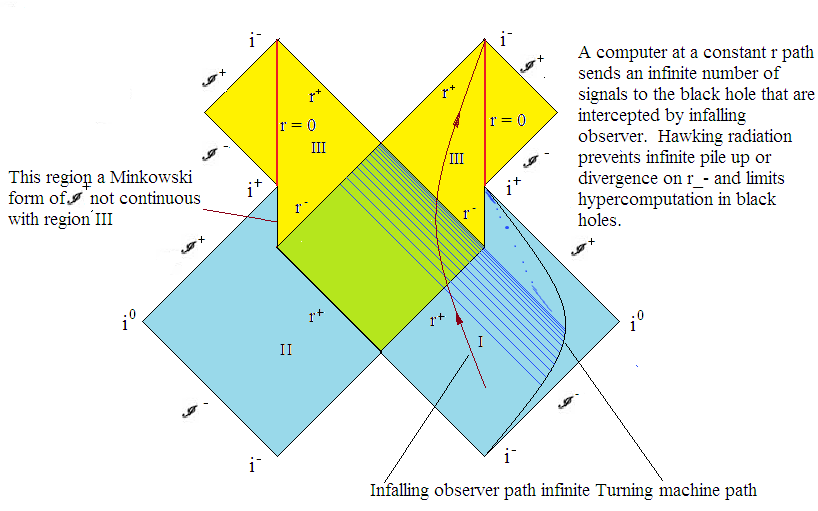For a long time, I've been fascinated with a set of theorems that seem to define the boundary of the knowable universe. And by that, I don't mean just the limit of what we know today, to be extended as we learn more tomorrow. I mean the absolute limits of science and reason, beyond which we can never venture, no matter how clever we are. These boundary meta-theorems include the following:
- Heisenberg's Uncertainty (Physics) — There is a limit to how
accurately we can measure the properties of physical objects.
- Bell's Inequality (Physics) — That limit applies not just to our
ability to measure things accurately, but to our fundamental ability
to know things about physical objects.
- Gödel's Incompleteness (Mathematics) — Any attempt to explain
everything using a small(er) set of axioms is doomed to be either
unfinished or wrong.
- Turing's Undecidability (Computing) — There are infinitely many
problems that cannot be solved by any digital computer.
- Chaitin's Irreducibility (Computing & Mathematics) — Almost every
number (probability = 1) is "random" in the sense that it cannot be
computed by an algorithm that is much shorter than the digits of the
number. That is, the shortest name for the number is the number
itself. Randomness exists in mathematics as well as physics!
Notice the last word in each of the theorem names. Each of them expresses a negative. Each of them tells us something about what we cannot do, where we cannot go, what we cannot, under any circumstances, know.
Intuition suggests these five principles, despite their different fields of application, are somehow related. In fact, they seem to be exactly the same, or at least stem from the same underlying phenomenon. Namely this:
Fundamental randomness exists. It isn't just a small wart on our logical world, but rather an unfathomable ocean surrounding it. We cannot ever know what goes on in this ocean of randomness. We can only glimpse the shape of the coastline of our little island of reason, as the theorems and principles listed above begin to illuminate.
Specifically for physics, Heisenberg's Uncertainty Principle basically says, certain pairs of properties of physical objects — simple things like where it is and how fast it's going — cannot be simultaneously measured with perfect precision. The more carefully you measure the position of, say, an electron, the less certain you can be about its velocity at that same moment. If you are very, very, very careful measuring the position, then whatever number you observe for the velocity is essentially meaningless; it is random beyond a certain number of decimal places. Now this limit on how accurate one can be with these combined measurements is quite negligible for larger objects like bowling balls or BBs, but for small things like electrons and photons it makes a difference. The combined limit on our accuracy of measurement is determined by the reduced Plank constant which is about 35 decimal places of accuracy. Beyond that, physical properties are universally un-measurable.
HUP can be understood by thinking about how one's measurements affect the object being measured. Measuring the position of an electron involves shining a light on it, and a more accurate measurement requires shorter bandwidth, higher energy photons. When the electron is impacted by the high-energy photon, its velocity is affected, thus introducing randomness.
And that is the way it was presented and talked about at first, as a limit on experimental accuracy. The Quantum Physics textbook I used in college, the 1974 edition of Quantum Physics, by Eisberg and Resnick, explained the Uncertainty Principle by saying, "our precision of measurement is inherently limited by the measurement process itself [...]." Albert Einstein, and many other prominent contemporaries of Heisenberg, believed there must still be an underlying set of "hidden variables" that control the universe and provide precise, deterministic answers to any question, even if we were forever limited in our ability to experimentally verify those answers due to the Uncertainty Principle.
Einstein, together with his colleagues Boris Podolsky and Nathan Rosen, even wrote a famous paper in which they, almost mockingly, proved that Quantum Mechanics must be wrong, or else the world as we know it would be a truly strange place. To do this, they assumed only two seemingly obvious things about the world. First, that objects have intrinsic properties like position and velocity, even when no one is measuring them. This they called "reality." And second, that measurements of reality in one place and time cannot instantaneously affect other, far away realities, a property they called "locality." Einstein, Podolsky and Rosen basically said, who would want to live in a world where reality and locality did not hold. In other words, they believed our friendly, orderly universe could not possibly be intrinsically random.
But they were wrong.
In 1964, Professor John Stewart Bell proved a result that some have called, "the most profound discovery of science." The unassuming title of his brilliant paper, On the Einstein Podolsky Rosen Paradox, referred back to the "paradox" outlined by Einstein and his pals. Bell proved that the universe is in fact fundamentally, inherently, inescapably random. More precisely, he showed that no deterministic theory based on hidden variables could possibly explain all the observed results of Quantum Mechanics. And if that means there is no such thing as reality or locality, then so be it. Either the principle of reality or the principle of locality (or both) does not apply in our universe! A strange place indeed.
Heisenberg's Uncertainty Principle is not just a limit on how accurately we can measure things. It's a limit on what we are allowed to know about the universe in which we live. There are physical quantities that are universally unpredictable. At the very foundation of our familiar physical world, lies the Divine Random.
Read more about The Divine Random.

